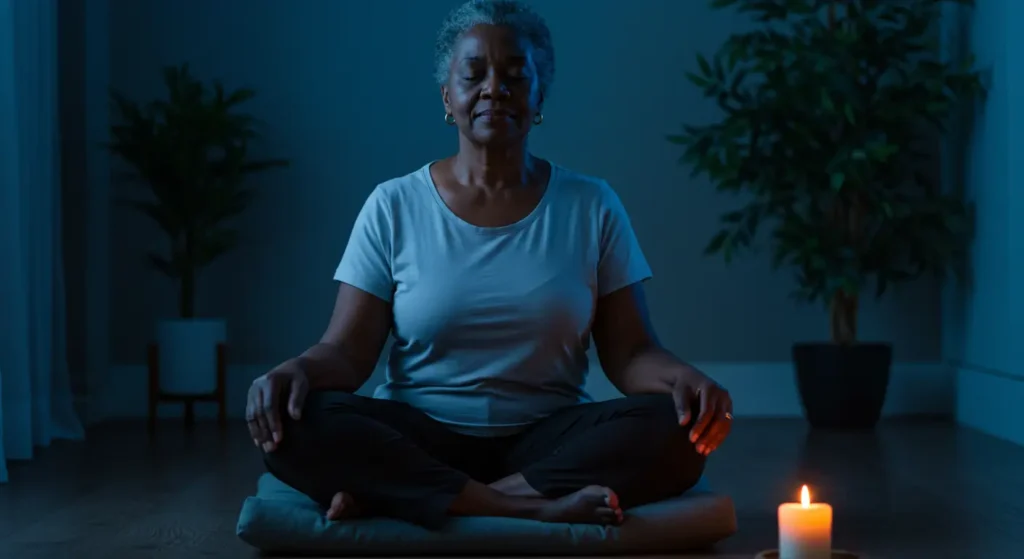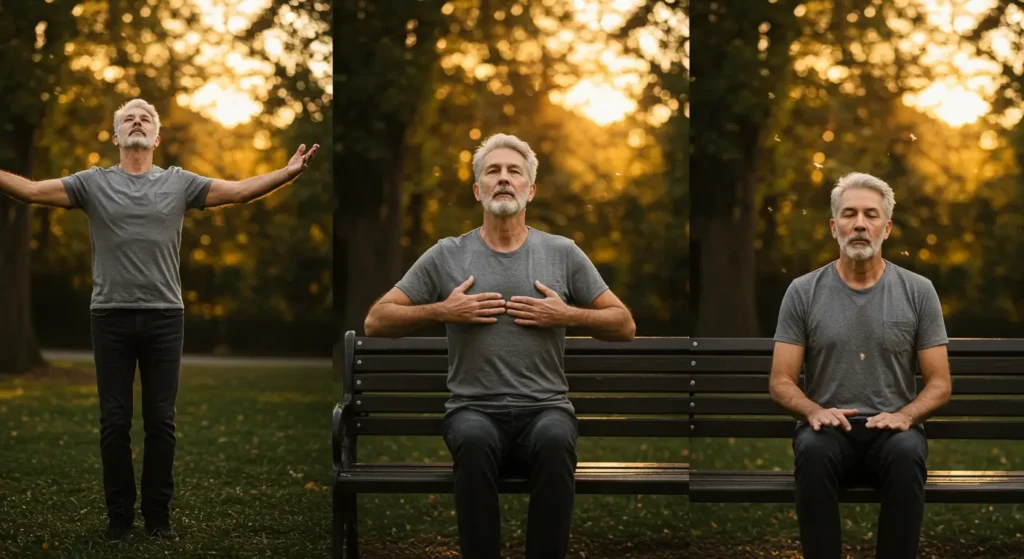
Struggling to get a good night’s sleep after 60? You’re not alone. As we age, changes in hormone levels, chronic pain, and stress can interfere with deep, restorative rest — leading to fatigue, irritability, and health complications.
While many turn to medications or supplements, there’s a natural, gentle solution that’s often overlooked: breathing. Practicing the right breathing exercises can help calm your nervous system, ease physical tension, and prepare your body for quality sleep.
For some, issues like bloating or poor gut health may also play a role in disrupting restful sleep. Improving digestion naturally can enhance your body’s ability to relax, making breathing even more effective.
Why Breathing Matters More After 60
As we get older, our bodies respond differently to stress and fatigue. Sleep becomes lighter, and it’s easier to wake up during the night. At the same time, chronic inflammation, anxiety, and discomfort can trigger a stress response in the body — keeping us in a state of alertness when we should be winding down.
That’s where intentional breathing comes in. Deep breathing sends a signal to your nervous system that it’s safe to relax. It lowers cortisol levels, slows heart rate, and reduces muscle tension — all of which are essential for falling and staying asleep.
The Science Behind Breathing and Sleep

When you breathe deeply, especially through your diaphragm, you activate your body’s parasympathetic nervous system — also known as the “rest and digest” system.
But here’s what many people overlook: when your digestive system is inflamed or out of balance, it can interfere with this relaxation response. That’s why older adults dealing with gut issues often experience poor sleep quality. Learning how to improve gut health naturally may enhance your ability to wind down at night, supporting both digestion and deeper rest.
Breathing techniques help regulate heart rate, lower blood pressure, and calm the mind — giving your body the signals it needs to enter a deep sleep state.
Daily Breathing Routine Before Bed
Creating a simple nighttime breathing routine can help signal to your body that it’s time to relax. Here’s a powerful method you can start using tonight:
- Lie down comfortably with a pillow under your knees.
- Place one hand on your belly and one on your chest.
- Inhale slowly through your nose for 4 seconds.
- Hold the breath for 2 seconds.
- Exhale gently through your mouth for 6–8 seconds.
- Repeat for 5–10 minutes.
This routine lowers stress hormones and helps your body shift into sleep mode.
If pain or stiffness in your knees or hips makes it hard to sleep comfortably, check out these daily joint relief habits that complement your bedtime routine.
🌙 Want a complete step-by-step program to unlock better sleep using your breath?
Discover a simple routine that thousands over 60 are using to rest deeply.
Breathing Techniques That Calm the Mind
Sleep isn’t just about the body — your mind needs to relax, too. Racing thoughts and mental tension can delay the onset of sleep and reduce its quality. Try this simple technique called Box Breathing:
1. Inhale for 4 seconds
2. Hold for 4 seconds
3. Exhale for 4 seconds
4. Hold for 4 seconds
Repeat the cycle for 4–5 minutes while visualizing something peaceful, like ocean waves or a calm forest.
This breathing method is especially helpful if you’re prone to anxiety or nighttime overthinking.
If neck or shoulder tension makes it difficult to relax fully, these posture and alignment tips may help release stored tension and support deeper relaxation.
Building a Better Sleep Environment

Even the best breathing techniques can be disrupted by poor sleep habits. Here’s how to set the stage for success:
Even the best breathing techniques can be disrupted by poor sleep habits, so creating a calm and supportive sleep space is essential. Start by turning off screens at least 30 minutes before bed to allow your brain to wind down. Keeping your room slightly cooler — around 65°F (18°C) — can also encourage deeper rest. Some people find comfort in soft ambient sounds, so consider using a sound machine or gentle music. Scents like lavender or chamomile, diffused in the room, help promote relaxation. You can try a gentle diffuser with pure lavender essential oil to create a relaxing sleep atmosphere. Also, make sure you’re sleeping on a pillow that keeps your neck and spine properly aligned. A supportive memory foam pillow can help align your spine and reduce neck strain overnight. When paired with calming rituals like breathing exercises and light journaling, these habits can turn bedtime into a peaceful, healing moment instead of one filled with restlessness.
Final Thoughts: Small Habits, Big Results
You don’t need drastic changes or expensive tools to sleep better after 60. Just a few minutes of intentional breathing each night can help you:
- Fall asleep faster
- Stay asleep longer
- Wake up feeling more refreshed
It’s a small habit — but one that can transform your energy, mood, and even your overall health.
🛏️ Ready to sleep better naturally?
Try this guided breathing program now.
Start Sleeping Better With This Guided Program
Take your nighttime routine to the next level with a science-backed breathing system designed specifically for adults over 60. Discover how thousands are using this gentle technique to fall asleep naturally — and stay asleep all night long.
⚠️ Disclaimer
This article is for informational purposes only and does not constitute medical advice. Always consult a qualified healthcare provider before starting new health practices, especially if you have existing conditions.
